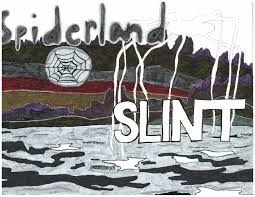Climate Change Draws BCC Students To Sierra Club Talk
October 12, 2021
Climate change is nothing new and is a challenge faced worldwide. Many people assume climate change cannot be stopped; some others don’t believe it exists.
Yet, according to the science, climate change affects everyone and everything, and it is happening right here in New Jersey. Matt Avallone presented a talk on “Climate Change and Our Coastal Parks” at the Oct. 6 Hunterdon, Warren, Hudson and Central Groups Sierra Club meeting held on Zoom and environmental science Professor Juliette Goulet offered lecture attendance as an extra-credit assignment.
“Generally, I teach environmental science and I want my students to engage in all appointments offered. Most students live in the county, and I think it’s a very important topic for local people and people looking to live here. It’s important for students to become aware of national parks nearby that they may not know about,” Goulet said.
“You can’t argue with science,” Avallone told those who attended his talk about the 88 coastal parks across the country.
Avallone said scientific studies prove that climate change is happening and if action isn’t taken now it’s going to become harder and harder to sustain life on earth. Keeping coastal parks environmentally friendly and clean is crucial to preventing climate change, he said.
“Acid rain occurs when nitrous oxides… these pollutants are released… from the tailpipes of cars. They go up into the atmosphere and react with water, and it comes down as nitrogen deposition and damage buildings, statues. It lowers the pH in the soil, which can be harmful to amphibians and fragile aquatic insects and aquatic organisms as well,” he said.
New Jersey is home to coastal parks, and it is important that they are kept safe. Many environmental issues are hard to undo, Avallone said, but steps can be taken.
Switching to electric cars can keep pollution out of the air. Out of 17,000 gateway parks 10,000 are polluted, he said, explaining that if water quality and air quality continue to decline at the current rapid rate, sustaining life on earth will become impossible.
Avallone advocated for communities to use their resources and revenue more wisely. Places like New England attract roughly 527,024 out-of-state visitors mainly attending football games. The majority of the money the state makes goes toward football, he said. Cape Cod, on the other hand, uses most of its visitor funding toward its coastal parks and keeping them clean.
Many people don’t realize that when coastal and national parks are flourishing so is the local economy. With highly polluted parks fewer people are likely to attend and fewer jobs are to be offered. Avallone said keeping the parks clean costs nothing yet 75 percent of the country’s gateway parks are polluted.
Over time if the polluted parks rate goes up, the risk of entering a point of no return in terms of restoring earth increases, he said. The longer it takes to accept environmental issues like climate change and polluted coastal parks, the longer it will take to reverse them.
Avallone’s PowerPoint demonstrated the tested air quality, and some of the areas tested in the gateway parks are classified as ozone nonattachment areas, which means certain areas of these parks do not meet air quality standards which is very harmful to the ozone layer.
Most of those who attended the presentation were senior citizens who were very engaged in what Avallone was discussing. Many asked questions and thanked him for a wonderful speech.
Students not only interested in pursuing a career in environmental but some planning on living in New Jersey throughout their lives also attended.
“I wanted to hear Mr. Avallone’s view on climate change and learn more about it,” said a BCC student who attended.
“The only reason I don’t think it’s important is because as humans I think we are faulty and I feel like climate change is already at its reach,” said another, who was not convinced of the urgency.


























